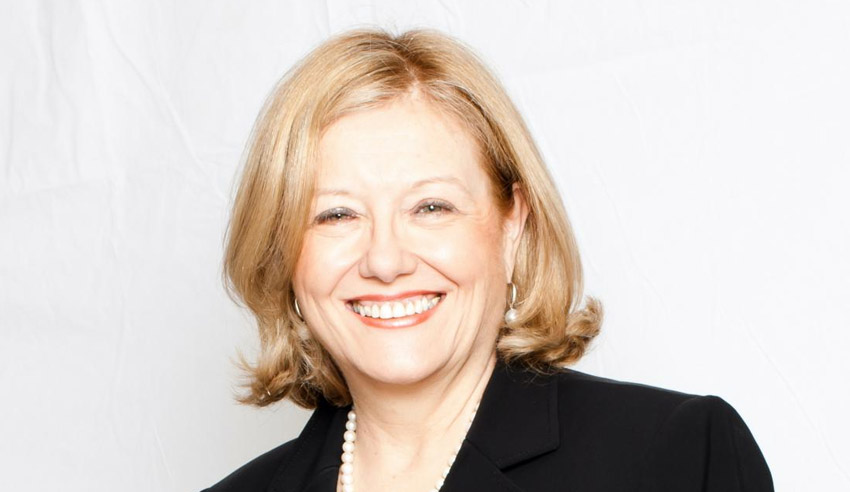Balance risk management with searches for opportunity, says Holman Webb CEO
A crisis is often thought of in terms of managing risk, Bronwyn Pott muses, but “it is the grit in an oyster that makes a pearl”.

Ms Pott is, perhaps, the longest-serving female chief executive of any Australian law firm, meaning she has the benefit of hindsight and perspective. Looking back on the pandemic to date, she has been telling everyone in her circle that the legal profession needs to think of the age of coronavirus, and the subsequent post-pandemic world, as more than simply a new normal, least of all because evolutions in the landscape are ongoing.
To continue reading the rest of this article, please log in.
Create free account to get unlimited news articles and more!
“Who knows what the new normal will look like…we need to be agile and alert to shifting markets and norms and work towards our ‘best guess’ of where things will land. I’m excited by the opportunities and the willingness of everyone in our firm to consider new ways of working. There is nothing like being a little off kilter to make change achievable,” she reflected.
In conversation with Lawyers Weekly, Ms Pott – who is the CEO of national firm Holman Webb Lawyers – said that the primary duty of CEOs of Australian legal practices, at this juncture, is to survive. This is closely followed, she said, “by determining how you can use the situation to your advantage”.
“A primary goal of a law firm CEO in these times is to interpret and manage external distractions, watch for opportunities and threats, and ensure every fee-earning lawyer is supported so they can do their best work,” she said.
“They say ‘never waste a good crisis’ for a reason. Firms exist to service clients and to do that, they need an engaged and supported workforce. A crisis is a good time to consider what’s really important, so you can rework your priorities, and that’s going to be different depending on the firm’s history and culture. How best to do that? Communicate, communicate and communicate some more.”
Such connectedness with the firm’s clients will be particularly challenging moving forward, Ms Pott continued, thus making it a bigger priority in the triage of to-do tasks.
“There are the normal business pressures of cash flow and workflow depending on the impact of COVID-19 on your clients, and for those who weren’t prepared there was the technology/remote working challenge, but I think in the medium term the biggest challenge is our connectedness; to one another, and to our clients,” she stressed.
“Finding new ways to connect when we aren’t able to get together and build social bonds is on top of my list, ensuring our client offering is hitting the mark, and caring for and supporting our people who have worked tirelessly over this long haul is another. The strength of client relationships has never been more important, nor has employee engagement.”
However, despite ongoing challenges changing the nature of how firms and their CEOs might conduct business, the fundamentals of good leadership remain in place. Ms Pott’s philosophy on what constitutes a good leader, she said, has been “tested and reinforced”.
“I was having dinner with a group of current and former Macquarie University management academics last week, after a roundtable discussion on the future of work, and someone commented that if you had to put a descriptor in front of the word leadership, then you weren’t talking about ‘true’ leadership,” she recounted.
“It gave me pause to think about what had worked for me in leadership roles in professional service firms (outside of my own functional specialty). I think it can mean different things in different circumstances, but at its core, you’ve got to be able to engender ‘follow-ship’, because if no one is following you, you aren’t leading anywhere!
“In times of uncertainty and ambiguity – and especially when there’s no playbook to fall back on – trust and authenticity are the cornerstones of your credibility, and even more important in the current environment.”
If law firm executives have been around a while, Ms Pott noted, they will have been through at least one major economic crisis. You can only make decisions based on the information on hand at the time, she said, “so make sure you’re well informed from credible sources (not always easy in our ‘post truth’ era)”.
“It’s also good to lift your head up and try to think how your decision will be viewed with hindsight, I’m not suggesting you obsess over that, but you need to consider if decisions are consistent with your values or simply expedient,” she advised.
A crisis is often thought of in terms of managing risk – what can we do to make sure the impact is minimised, but you need to balance that with the ongoing search for opportunity.”
“After all, it is the grit in an oyster that makes a pearl,” she concluded.
Last month, Lawyers Weekly conducted a Q&A with David Newman, the new CEO of Maddocks, about his plans for the national firm and thoughts about the role of CEO in a post-pandemic world.






